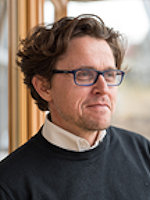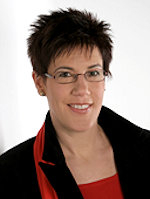July 6, 2017 - 13.00 - 14.30 GMT
 A webinar of the IEA SHC Programme's Solar Academy, hosted by the International Solar Energy Society (ISES).
A webinar of the IEA SHC Programme's Solar Academy, hosted by the International Solar Energy Society (ISES).
When IEA SHC Task 49 on Solar Heat Integration in Industrial Processes was launched 2012, there were approximately 120 SHIP systems generating up to 88 MWth. Over the last years, this figure has tripled to more than 500 SHIP systems generating a minimum of 291 MWth.
This technology is a growing market, but will require the integration concepts to be standardized and collector field costs to be cut. The researchers of SHC Task 49 focused on these and other challenges, and the webinar speakers highlighted some of the key findings as well as investment opportunities:
- Christoph Brunner -- Worldwide perspective of SHIP from planning to realization
- Pedro Horta -- Available technologies, design procedures and upcoming technological developments
- Bärbel Epp -- Investment opportunities in SHIP
Presenters
 Christoph Brunner studied process engineering at Graz University of Technology and worked first as a manger of a laboratory for physical and chemical tests in a tannery. After 10 years as department manager at Joanneum Research he joined AEE INTEC in 2010 and has built up the department “Industrial Processes and Energy Systems – IPE”. In his role as head of department he coordinates several projects e.g. the European projects EINSTEIN, Solarbrew, GREENFOODS and TrsutEE. The main topics of his work are the areas energy and resource efficiency, the integration of renewable energy for industry like solar process heat and membrane distillation for wastewater purification and process water upgrading. He was Operating Agent of the IEA SHC Task on “solar process heat”. Further he is involved in the Austrian and European work of Standardization for energy audits and he is working for UNIDO in field of energy efficiency for Industry. Parallel to his work at AEE INTEC he also gives lectures at the University of Applied Science in Pinkafeld and Joanneum in Graz in the field of “energy process engineering” and “solar energy”.
Christoph Brunner studied process engineering at Graz University of Technology and worked first as a manger of a laboratory for physical and chemical tests in a tannery. After 10 years as department manager at Joanneum Research he joined AEE INTEC in 2010 and has built up the department “Industrial Processes and Energy Systems – IPE”. In his role as head of department he coordinates several projects e.g. the European projects EINSTEIN, Solarbrew, GREENFOODS and TrsutEE. The main topics of his work are the areas energy and resource efficiency, the integration of renewable energy for industry like solar process heat and membrane distillation for wastewater purification and process water upgrading. He was Operating Agent of the IEA SHC Task on “solar process heat”. Further he is involved in the Austrian and European work of Standardization for energy audits and he is working for UNIDO in field of energy efficiency for Industry. Parallel to his work at AEE INTEC he also gives lectures at the University of Applied Science in Pinkafeld and Joanneum in Graz in the field of “energy process engineering” and “solar energy”.
 Pedro Horta graduated from the Instituto Superior Tecnico/Technical University of Lisbon earning degrees in Mechanical Engineering in 1999, MSc in Mechanical Engineering – Energy in 2005, and a PhD in Technological Physics Engineering in 2011. With a 15 years of experience in the development of research activities in the solar thermal field he has acquired a solid background in low and medium temperature solar thermal technologies and applications through developing R&D, training, engineering, consulting and product development activities, authoring articles and conference papers on topics including solar concentrator enhancement strategies, optical and thermal assessment of solar collectors, solar desalination, solar-thermal driven CHP, and improving solar collector yield assessment models. In addition to his research activities, Pedro Horta has developed lecturing activities on solar desalination, solar concentrating technologies and energy management for Masters students in Portugal (ULisboa, UFaro, UEvora), Spain (UTenerife) and Sweden (UDalarna). Pedro Horta is currently the Head of the Group on Thermal Industrial Processes and Systems at Fraunhofer ISE. He served as the Subtask A: Solar Collector Technologies leader in IEA SHC Task 49 on Solar Process Heat for Production and Advanced Applications and is the Coordinator of H2020 ECRIA INSHIP - Integrating National Research Agendas on Solar Heat for Industrial Processes (H2020 GA Nr. 731287).
Pedro Horta graduated from the Instituto Superior Tecnico/Technical University of Lisbon earning degrees in Mechanical Engineering in 1999, MSc in Mechanical Engineering – Energy in 2005, and a PhD in Technological Physics Engineering in 2011. With a 15 years of experience in the development of research activities in the solar thermal field he has acquired a solid background in low and medium temperature solar thermal technologies and applications through developing R&D, training, engineering, consulting and product development activities, authoring articles and conference papers on topics including solar concentrator enhancement strategies, optical and thermal assessment of solar collectors, solar desalination, solar-thermal driven CHP, and improving solar collector yield assessment models. In addition to his research activities, Pedro Horta has developed lecturing activities on solar desalination, solar concentrating technologies and energy management for Masters students in Portugal (ULisboa, UFaro, UEvora), Spain (UTenerife) and Sweden (UDalarna). Pedro Horta is currently the Head of the Group on Thermal Industrial Processes and Systems at Fraunhofer ISE. He served as the Subtask A: Solar Collector Technologies leader in IEA SHC Task 49 on Solar Process Heat for Production and Advanced Applications and is the Coordinator of H2020 ECRIA INSHIP - Integrating National Research Agendas on Solar Heat for Industrial Processes (H2020 GA Nr. 731287).
 Bärbel Epp is managing director of the agency solrico – solar market research & international communication. She is responsible for the monthly newsletter of www.solarthermalworld.org covering news articles about markets and technology trends in SHC. solrico published the first World Map of Solar Process Heat Specialists at the beginning of 2017 and is a partner in the international project Solar Payback that aims at increasing the deployment of SHIP (Solar Heat for Industrial Processes) in four partner countries: India, South Africa, Brazil and Mexico. She graduated in physics and looks back at 20 years of journalism in the field of solar thermal energy (www.solrico.com).
Bärbel Epp is managing director of the agency solrico – solar market research & international communication. She is responsible for the monthly newsletter of www.solarthermalworld.org covering news articles about markets and technology trends in SHC. solrico published the first World Map of Solar Process Heat Specialists at the beginning of 2017 and is a partner in the international project Solar Payback that aims at increasing the deployment of SHIP (Solar Heat for Industrial Processes) in four partner countries: India, South Africa, Brazil and Mexico. She graduated in physics and looks back at 20 years of journalism in the field of solar thermal energy (www.solrico.com).
Webinar Recording
Additional Information
Webinar Recording